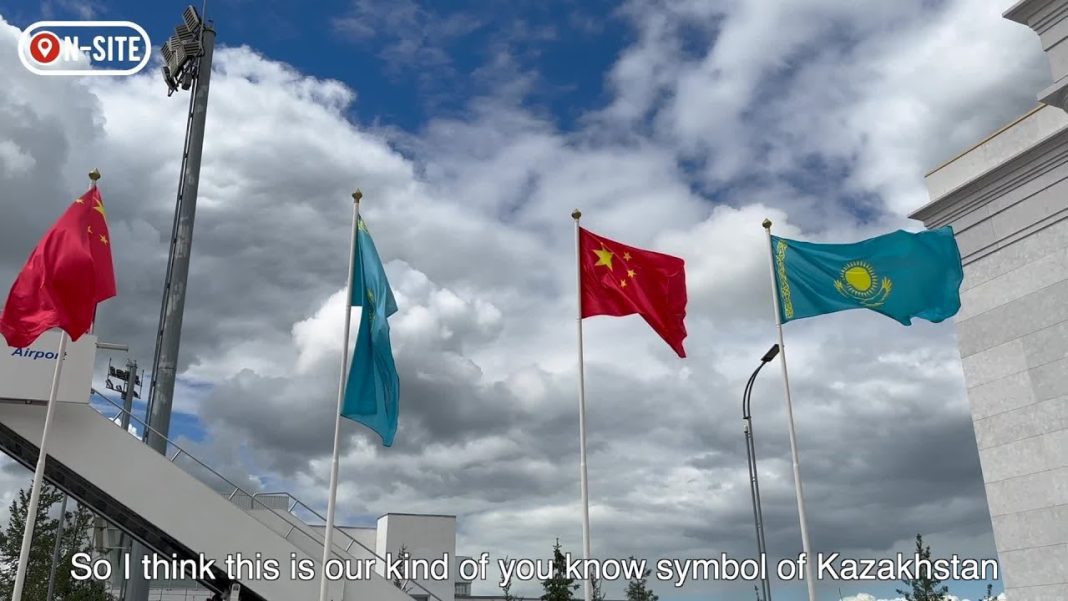►► About one year ago at the 23rd meeting of the Council of Heads of State of the Shanghai Cooperation Organization (SCO), Chinese President Xi Jinping raised a question to the global community: Unity or split, peace or conflict, cooperation or confrontation — these are the questions raised again by our times.
As leaders of the SCO prepare to meet here for a new gathering, the question remains relevant as the world is increasingly defined by geopolitical tension and economic uncertainty.
Against this context, the SCO’s growing cooperation and commitment to enhancing connectivity is a strong example of unity and progress achieved through working together.
It keeps the region safe and makes important contributions to world peace, prosperity, and long-term progress in line with the United Nations’ Sustainable Development Goals.
Since its inception in China’s Shanghai in 2001, the SCO has expanded from a regional organization with six members into a trans-regional organization with nine full members, three observer countries, and 14 dialogue partners, covering over 60 percent of the Eurasian landmass and nearly half of the world’s population.
This remarkable growth underscores the SCO’s importance as a platform for fostering multilateral cooperation and addressing shared challenges.
In a world grappling with rising bloc confrontations and isolationist tendencies, the SCO stands as a steadfast advocate for connectivity and cooperation, as well as openness and inclusiveness.
The SCO’s structure facilitates a wide range of initiatives aimed at increasing connectivity and deepening cooperation. For example, the Regional Anti-Terrorist Structure, headquartered in Tashkent, Uzbekistan, illustrates the organization’s dedication to cooperative security.
Through joint military exercises, intelligence sharing, and coordinated efforts to combat terrorism, separatism and extremism, the SCO enhances regional security and stability. This cooperative security framework has reduced the potential for conflicts and fostered a safer environment for all member states.
As a trans-regional cooperation mechanism, the SCO not only focuses on security but also on economic connectivity. This dual focus contributes to a stable and prosperous environment throughout the broad Eurasian region, encouraging sustainable development and improving the quality of life for its people.
For years, economic initiatives like the SCO Business Council and the SCO Interbank Consortium have promoted trade and investment among its member countries, and the SCO’s commitment to economic connectivity and integration is further demonstrated through its support for the Belt and Road Initiative (BRI).
With its location and diverse membership, the SCO is a key partner of the BRI, and the BRI cooperation has facilitated the development of transport corridors, energy projects, and communication networks that link SCO member states and beyond.
A prime example is the agreement on constructing the China-Kyrgyzstan-Uzbekistan railway, reached in early June. Once completed, this railway will significantly shorten the time required to transport Central Asian products to major global markets. It will also facilitate the integration of Central Asia into global industrial and supply chains, thereby boosting regional development.
As SCO countries enhance their cooperation, the organization is poised to play an even greater role in shaping regional dynamics, not just through security and economic cooperation, but also by enhancing mutual understanding among its member countries.
By promoting educational exchanges, tourism, and cultural events, the SCO helps break down barriers and build bridges between diverse cultures.
As a network of universities from SCO member states that cooperate on research and education, the SCO University enhances academic and professional opportunities and builds a foundation for long-term cooperation and goodwill among future leaders.
Overall, this holistic approach has underscored the SCO’s commitment to fostering a stable, prosperous, and interconnected region, and highlighted the lasting vitality of SCO’s bedrock principle — the Shanghai Spirit, which features mutual trust, mutual benefit, equality, consultation, respect for diversity of civilizations and pursuit of common development.
As the world faces unprecedented challenges, the SCO’s steadfast commitment to connectivity, cooperation, and multilateralism offers a beacon of hope for a more harmonious and prosperous future. ■
by Xinhua





